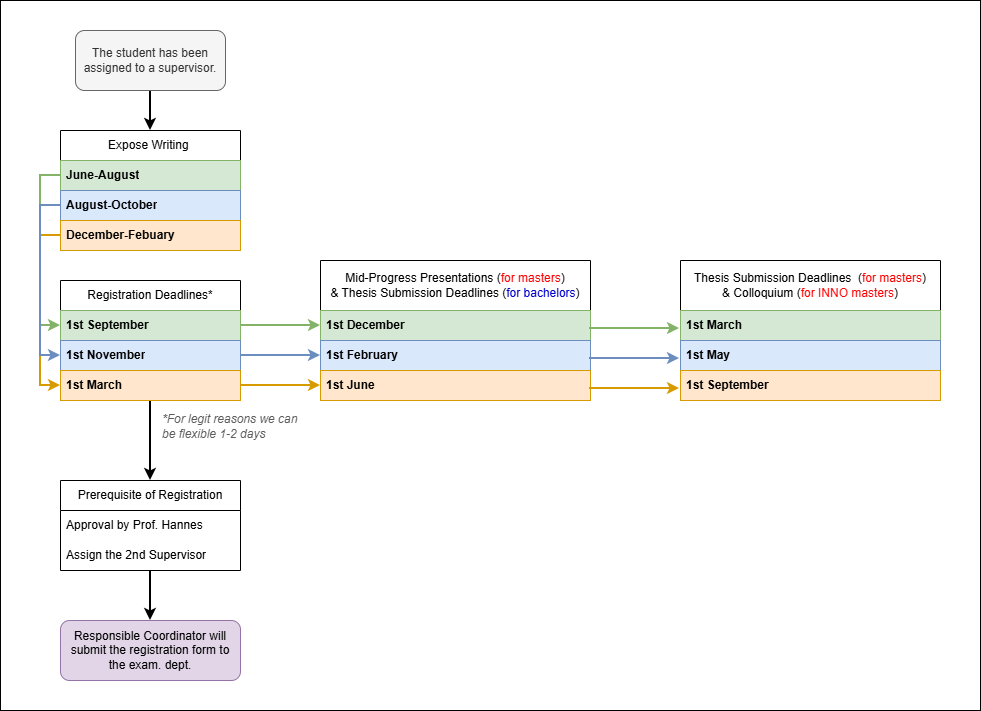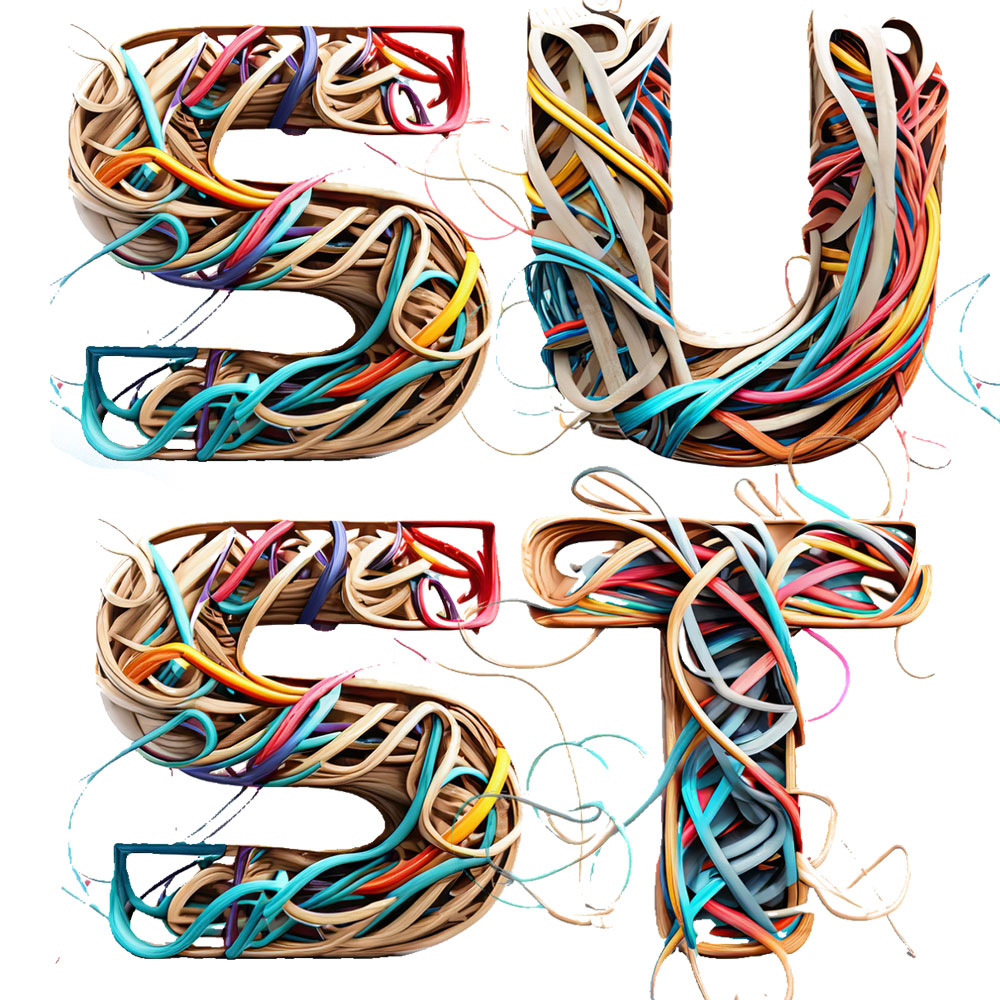Theses
Theses
Topics
Bachelor
- Generativity theory and affordance theory in platforms, e.g.,
- How has iOS become a jack-of-all-trades?
- What enables influencers on social media platforms to produce ever more and ever more diverse content?
- Platform ecosystems and the common good: Investigating ecosystem design and expansion around renewable resources, e.g.,
- How does sustainable design impact network effects? (supervisor: Annemarie Bloch)
- Sovereign AI: Creating network effects in local and global ecosystems
-
The impact of AI on digital smart services and the actors that use them(supervisor: Daniel Courtney) - AI-Driven Digital Artifacts for Startup Transformation
- How can AI-driven digital tools reshape early-stage entrepreneurial processes and improve the transition from idea to market? (supervisor: Elias Jelinek)
- Enhancing Entrepreneurial Decision-Making with AI
- How does the integration of AI in digital platforms optimize decision-making and resource allocation in startup development? (supervisor: Elias Jelinek)
- Accelerating Innovation: The Role of AI in Startup Ecosystems
- In what ways do AI-powered platforms influence innovation rates and time-to-market in early-stage ventures?(supervisor: Elias Jelinek)
Master
- Impact of the Computational Frame Problem on Digital Entrepreneurs, an empirical approach. (supervisor: Mahnoor Shahid)
- Assessing the limits of risk management and requirements for neuro-symbolic AI: a design-science approach. (supervisor: Mahnoor Shahid)
- Generativity in data:
- generative use of data by ML projects (contact: Hannes Rothe)
- a quantitative analysis of health data ecosystems. (contact: Daniel Courtney)
- Framing Platform Governance: Explaining the role of narratives in platform strategies, e.g.,
- How concrete should you inform users and partners about strategic changes? (contact: Hannes Rothe)
- Should you position your platform as innovative, sustainable, or both? (contact: Hannes Rothe)
- Regenerative organizations and/or regenerative entrepreneurs applying digital technologies for the common good, specifically to address ecological challenges, e.g., (supervisor: Annemarie Bloch)
- The implementation and usage of Blockchain technologies for climate action and ecological ecosystems.
- Theoretical explorations on decentralization for approaches towards (poly-) governance of global commons
- Investigating healthcare platforms in the age of digitalization: the development of their ecosystems, frameworks and (business) models (supervisor: Daniel Courtney)
- Designing a data-driven (smart) service for good: an exploratory approach (supervisor: Daniel Courtney)
- Examining the rise of digital platform ecosystems within healthcare and their influence on the roles of the practitioner and user (supervisor: Daniel Courtney)
- Designing AI-Driven Digital Artifacts for Startup Acceleration
- How can design science research be applied to develop AI-driven digital artifacts that streamline the transition from startup idea to viable MVP? (supervisor: Elias Jelinek)
- Standardizing Critical Startup Functions through AI-Enhanced Platforms
- How can a design science framework be employed to create and evaluate an AI-powered system that standardizes key startup functions to reduce time-to-market and early-stage failure rates? (supervisor: Elias Jelinek)
- Evaluating Business Models with Agentic AI: A Design Science Research Approach
- How can agentic AI be integrated into the evaluation process of business ideas and models to enhance decision-making and reduce early-stage venture risks? (supervisor: Elias Jelinek)
- AI Agents or Generative AI in Entrepreneurial Decision-Making e.g.:
- How can AI agents or generative AI systems be designed and evaluated to support opportunity recognition, experimentation, and strategic decision-making under uncertainty? (Marvin Mathis)
- AI-Enhanced Development of Entrepreneurial Competencies e.g.:
- How can AI-powered learning or coaching systems be designed to foster entrepreneurial competencies? (Marvin Mathis)
- How can human–AI collaboration tools enhance entrepreneurs’ agency during critical venture transitions such as ideation, validation, or scaling? (Marvin Mathis)
- How can human–AI collaboration be designed to support individuals in developing agency during the transition into entrepreneurship? (Marvin Mathis)
- Corporate–Startup Collaboration and Capability Development in Early Ventures (Venture Clienting) e.g.:
- How can venture clienting models be structured to systematically build strategic, operational, and market capabilities in early-stage startups? (Marvin Mathis)
- What learning and knowledge-transfer mechanisms explain capability development through corporate–startup venture clienting? (Marvin Mathis)
- Entrepreneurial Capability Building in Academic Technology Transfer e.g.:
- How can entrepreneurial university support programs be designed to systematically develop entrepreneurial capabilities and increase successful commercialization outcomes? (Marvin Mathis)
Bachelor & Master
- Open topics on theory testing and theory expansion with empirical investigation into Digital Innovation and Digital Entrepreneurship with Platforms, Data, or AI.
- Open topics on design-science research in smart service system design with machine learning methods.
- Open topics on digital entrepreneurship for sustainability, regenerative practices and/or tackling ecological challenges (supervisor: Annemarie Bloch)
- Open topics on the development of e-Health regarding user experience and/or service design with a focus on procedures and practices (supervisor: Daniel Courtney)
- Open topics on design science research in scaling startups by leveraging agentic AI, large language models, and templated digital frameworks. (supervisor: Elias Jelinek)
Process
We consider the following thesis procedure, from exposé writing and registration to mid-progress presentations and final submission.
Please check the timeline carefully to identify the deadlines that apply to your program (bachelor’s, master’s, or INNO master’s) and plan your work accordingly. Let us know in which color group you are interested in participating.

Interested in writing thesis with us?
Reach out to us via this application form: Thesis Application Form – Fill in form
FAQ
During a period of about 3 months (bachelor) or 6 months (master), students prove that they are able to self-suffiently write an academic thesis on a current topic of management information systems. In the following, we shed light into how students can write their thesis at the chair of information systems and sustainable supply chain management.
Do you write your thesis in English or German?
As we are a highly international chair, we expected theses in English.
Where to start and how to choose a topic?
Subject to remaining capacities, we supervise bachelor's and master's theses on our research topics. You can either formulate your own initial proposals related to the general topics mentioned on our websites.
First, we ask students to contact professor Rothe or a research associate of the chair to ask for available capacities and narrow down a topic of interest. Once, a topic of interest has been found, students formulate a 2-page exposé on their topic.
How should the exposé look like?
Exposé's have a typical length of 1-2 pages, consisting research motivation (either problematization or research gap), research question, and research methodology. Writing and iterating an exposé may take 2-6 weeks.
How to write a thesis?
The formal requirements for the structure and design of qualification theses are set out in a Leitfaden zur Erstellung wissenschaftlicher Arbeiten in der Wirtschaftsinformatik (German, English version follows). Around half time of their thesis editing time, we expect students to hand-in a structure of their work (main headlines with approximated page numbers) to have a half time consultation with their supervisor.
Please, consider the formal requirements for a thesis as laid out here: https://www.uni-due.de/verwaltung/pruefungswesen/e_wirtschinf_startseite.php
Where do you find literature?
In general, we suggest that you conduct a fair literature review on the topic of interest. Ideally, students find central articles while producing their exposé, and engage in a representative literature search during their thesis development.
Conducting a literature review is easier than it sounds. We shed light on how to do this, in a short video: https://www.youtube.com/watch?v=2NmDlsy_Igw (German, English follows)
Moreover, literature can be found in various databases. Either way, we strongly advise students to make sure that their literature search covers leading journals. This includes journals in information systems (AIS Senior Scholars' Basket of Journals), and management journals, including but not limited to:
- European Journal of Information Systems
- Information Systems Journal
- Information Systems Research
- Journal of AIS
- Journal of Information Technology
- Journal of MIS
- Journal of Strategic Information Systems
- MIS Quarterly
- Information & Organization
- Organization Science
- Strategic Management Journal
- Administrative Science Quarterly
- Management Science
Literature can be found in the following databases:
| Library | Description |
| Go to Studies | Meta-search engine that helps you search across ranked journals (information systems, management ...) easily. |
| AIS eLibrary | Digital library of AIS publications (most Senior Basket journals included), full text only partly possible, upon request the supervisor can provide individual articles |
| ACM Digital Library | Digital library of ACM publications, full-text access at university computers |
| IEEE Digital Library | Digital library of IEEE publications, full text access generally not possible |
| Wirtschaftsinformatik | Academic journal on business informatics, upon request the supervisor can provide individual articles |
| Scientific Literature Digital Library (CiteSeer) | Database of publications in computer science and information sciences, full texts are usually linked and freely available. |
| Computer Science Bibliography | Bibliography of publications in computer science, provided by the University of Trier, without full texts. |
| EBSCOhost | US database provider with literature database that covers many management journals, includes full-text databases |
| JSTOR | Digital library for journals, books and primary literature; full-text access available on university computers |
| SpringerLink | Online library for science, technology and medicine |
New Policy on LLMs and Transparency in Work Creation
We are implementing a new policy to ensure transparency and clarity in the creation of student works, especially those involving Large Language Models (LLMs) like GPT. This policy applies to all works, including seminar papers, thesis, and project reports, and is designed to foster academic integrity, rigor, and replicability in your research.
Key Changes:
- All works must present a clear and transparent account of the methods and tools used in their creation. This includes documenting any use of AI or LLMs in the process.
- When LLMs are used, students are required to submit the complete chat history. This includes both the prompts given to the LLM and its responses. Students should ensure that they use a single chat session, save it in its entirety, and send it separately along with their work. This will provide a comprehensive record of how the work was generated.
- In the methods chapter of your work, there must be a specific sub-chapter detailing the tools and methods used to support your writing and study. This is to ensure that all methods, including AI-based tools, are fully explained and their role in the creation process is clear.

